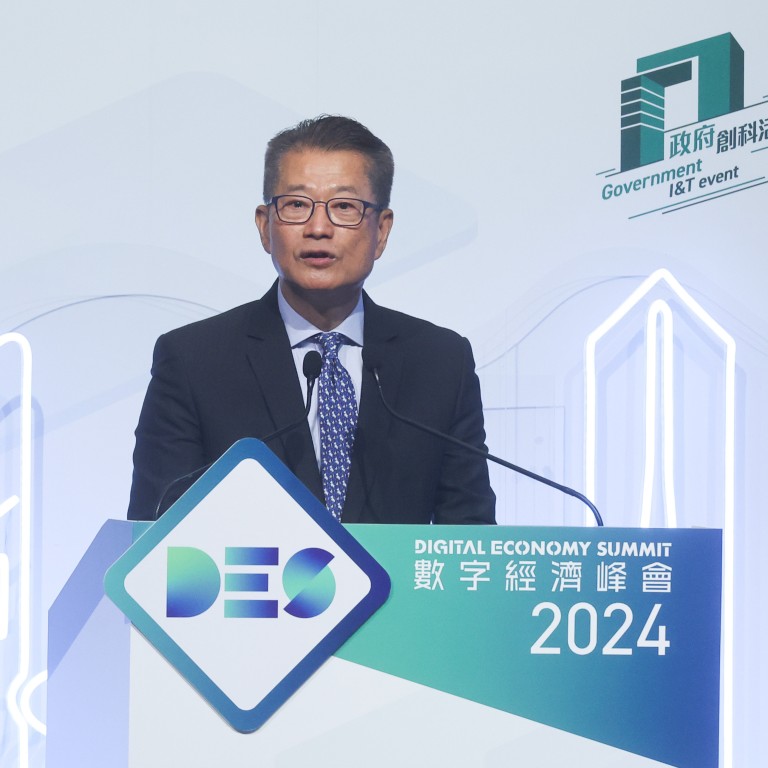
New office will help to digitalise the economy
- With an estimated 50 trillion yuan digital market just across the border, Hong Kong must be ready to unleash its potential and gain a big slice of that economic pie
Build more roads, and the cars and trucks will come. Develop more digital services, and people and companies will use them. That, at least, is the hope.
The Hong Kong government will set up a high-power office to devise policies to digitalise the local economy and make the city “smarter” and more electronically connected to the mainland.
It is a grand vision that Financial Secretary Paul Chan Mo-po recently spelled out at the Digital Economy Summit.
An estimated 50 trillion yuan (US$6.91 trillion) market sits just across the border. That is the aggregate worth of goods and services generated by the digital economy in mainland China, accounting for 40 per cent of gross domestic product.
It behoves the SAR government to gain as big a slice of that economic pie, especially when Beijing has gone out of its way to pave the way for Hong Kong to integrate fully into the commercial juggernaut of the Greater Bay Area.
1.8 million Hong Kong firms to benefit from iAM Smart online services: Paul Chan
China is leading the world in digital payments and services. Hong Kong must catch up.
Chan pointed out that hi-tech fields such as fintech, Web3 and artificial intelligence (AI) are there to be developed and exploited for new businesses and opportunities, as the city builds the backbone infrastructure for them.
The Commercial Data Interchange, a financial platform run by the Hong Kong Monetary Authority, had paired businesses and banks to facilitate more than 13,000 loan applications worth HK$12 billion (US$1.5 billion) by the end of 2023.
Meanwhile, 5.5G networks, high-performance computers and rapid and secure cross-border information flows are fields that the new tech policy office aims to explore and develop opportunities.
In December, the government launched a pilot scheme for the flow of personal data across the Greater Bay Area to enhance banking, credit referencing and healthcare services for Hongkongers.
As part of a policy package, Chan expects a soon-to-be ready government-run platform called iAM Smart will help 1.8 million companies make payments or use government services. These are all steps in the right direction.
The trick is in the execution. Riding on the back of mainland China’s digital economy, Hong Kong must be ready to unleash its potential.

